Related Research Articles

Slovenia officially the Republic of Slovenia is a country in Central Europe. It borders Italy to the west, Austria to the north, Hungary to the northeast, Croatia to the south and southeast, and a short coastline within the Adriatic Sea to the southwest, which is part of the Mediterranean sea. Slovenia is mostly mountainous and forested, covers 20,271 square kilometres (7,827 sq mi), and has a population of approximately 2.1 million. Slovene is the official language. Slovenia has a predominantly temperate continental climate, with the exception of the Slovene Littoral and the Julian Alps. Ljubljana, the capital and largest city of Slovenia, is geographically situated near the centre of the country. Other larger urban centers are Maribor, Kranj, Celje and Koper.
In the minds of many foreigners, Slovenian folk music means a form of polka that is still popular today, especially among expatriates and their descendants. However, there are many styles of Slovenian folk music beyond polka and waltz. Kolo, lender, štajeriš, mafrine and šaltin are a few of the traditional music styles and dances.
Slovene literature is the literature written in Slovene. It spans across all literary genres with historically the Slovene historical fiction as the most widespread Slovene fiction genre. The Romantic 19th-century epic poetry written by the leading name of the Slovene literary canon, France Prešeren, inspired virtually all subsequent Slovene literature.
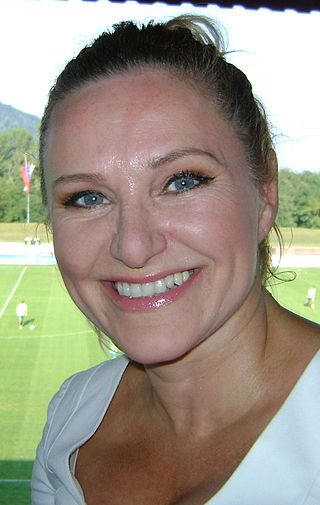
Nuša Derenda is a Slovenian singer who represented Slovenia at the 2001 Eurovision Song Contest in Copenhagen, Denmark where she achieved 7th place.
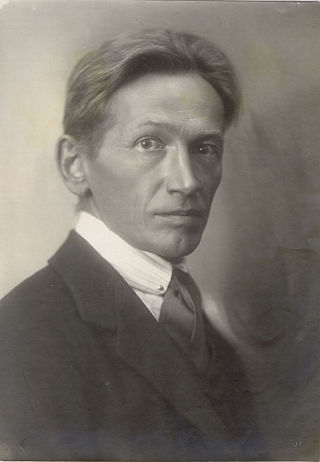
Oton Župančič was a Slovene poet, translator, and playwright. He is regarded, alongside Ivan Cankar, Dragotin Kette and Josip Murn, as the beginner of modernism in Slovene literature. In the period following World War I, Župančič was frequently regarded as the greatest Slovenian poet after Prešeren, but in the last forty years his influence has been declining and his poetry has lost much of its initial appeal.

Tomaž Šalamun was a Slovenian poet who was a leading figure of postwar neo-avant-garde poetry in Central Europe and an internationally acclaimed absurdist. His books of Slovene poetry have been translated into twenty-one languages, with nine of his thirty-nine books of poetry published in English. His work has been called a poetic bridge between old European roots and America. Šalamun was a member of the Slovenian Academy of Sciences and Arts. He lived in Ljubljana, Slovenia, and was married to the painter Metka Krašovec.

Slovene culture is the culture of the Slovenes, a south Slavic ethnic group. It is incredibly diverse for the country's small size, spanning the southern portion of Central Europe, being the melting pot of Slavic, Germanic and Romance cultures while encompassing parts of the Eastern Alps, the Pannonian Basin, the Balkan Peninsula and the Mediterranean.
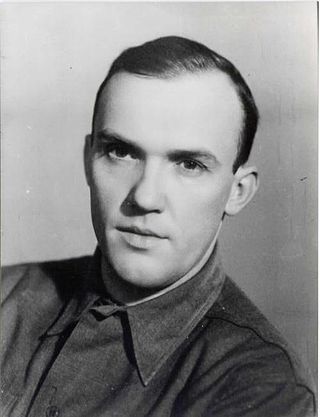
Matej Bor was the pen name of Vladimir Pavšič, who was a Slovene poet, translator, playwright, journalist and Partisan.

Majda Sepe was one of the most successful and well recognized Slovenian singers in the time of Yugoslavia and was one of the most renowned singers of the Golden Age of Slovenian folk music.
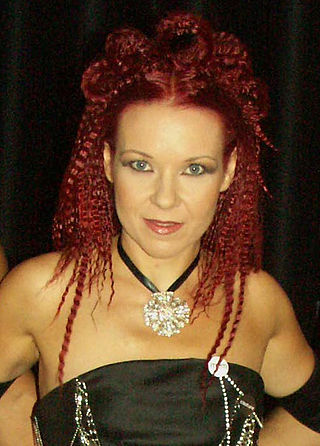
Regina is a Slovenian singer, best known for her participation in the 1996 Eurovision Song Contest.
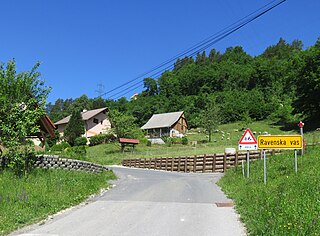
Ravenska Vas is a settlement immediately east and southeast of Zagorje ob Savi in central Slovenia. The area is part of the traditional region of Upper Carniola. It is now included with the rest of the municipality in the Central Sava Statistical Region.
Frajhajm is a dispersed settlement in the Pohorje Hills in the Municipality of Slovenska Bistrica in northeastern Slovenia. The area is part of the traditional region of Styria. It is now included with the rest of the municipality in the Drava Statistical Region.
Pokoše is a village northeast of Slovenska Bistrica in northeastern Slovenia. The area is part of the traditional region of Styria. It is now included with the rest of the Municipality of Slovenska Bistrica in the Drava Statistical Region.
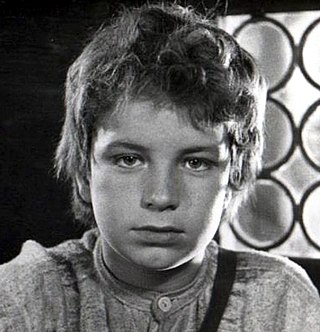
Matija Barl was a Slovenian actor, producer and translator. In 1962 he founded and organized the first, oldest and most important Slovenian music festival called Slovenska popevka.

France Koblar was a Slovene literary historian, editor and translator.
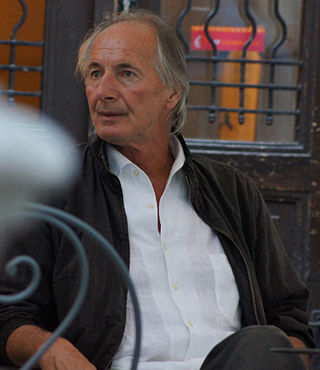
Janez Bončina, nicknamed Benč is a Slovenian composer, guitarist and singer. He is one of the leading authors and performers of Slovenian and Yugoslavian rock music. In the middle of the 1960s, Bončina with his friend Tomaž Domicelj from the group Helioni, showed his talent for music. Later with the group "Mladi Levi" he created projects which started the Slovenian pop rock scene.
"The Earth is Dancing" is a 1962 pop song, music of which was written by Mojmir Sepe based on a lyrics by Slovene poet Gregor Strniša that was awarded at the first edition of the Slovenian song festival where it was sung by a notable singer Marijana Držaj. The song became an evergreen, a popular and enduring example of Slovenian popular music. It has been since then released in a number of re-mixes. It also inspired one of the first musical videospots made in 1980s in Slovenia, at the time part of Yugoslavia, where both the videospot and the song were also popular.
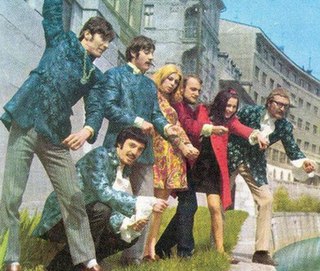
Bele Vrane were a Yugoslav rock band formed in Ljubljana in 1966.

Sara Briški Cirman, better known by her stage name Raiven, is a Slovenian singer, songwriter, and harpist. She represented Slovenia at the Eurovision Song Contest 2024 with the song "Veronika". She first garnered wide recognition while competing to participate in the Eurovision Song Contest 2016 for Slovenia during the national final Evrovizijska Melodija (EMA) with the song "Črno bel", where she placed second. Raiven went on to return to EMA in 2017, placing third with the song "Zažarim", and has competed again in 2019 with the song "Kaos", placing second.
Miha Kralj is a Slovene composer, singer, performer and record producer. He is a pioneer in the electronic, ambient and new-age musical genres in Slovenia and former SFR Yugoslavia. He is also called "Yugoslavian Jean-Michel Jarre".
References
- ↑ It was more than a festival, it was a movement, Delo, 20 June 2012
- ↑ The evergreens discovered by young generations, Delo, 3 March 2012